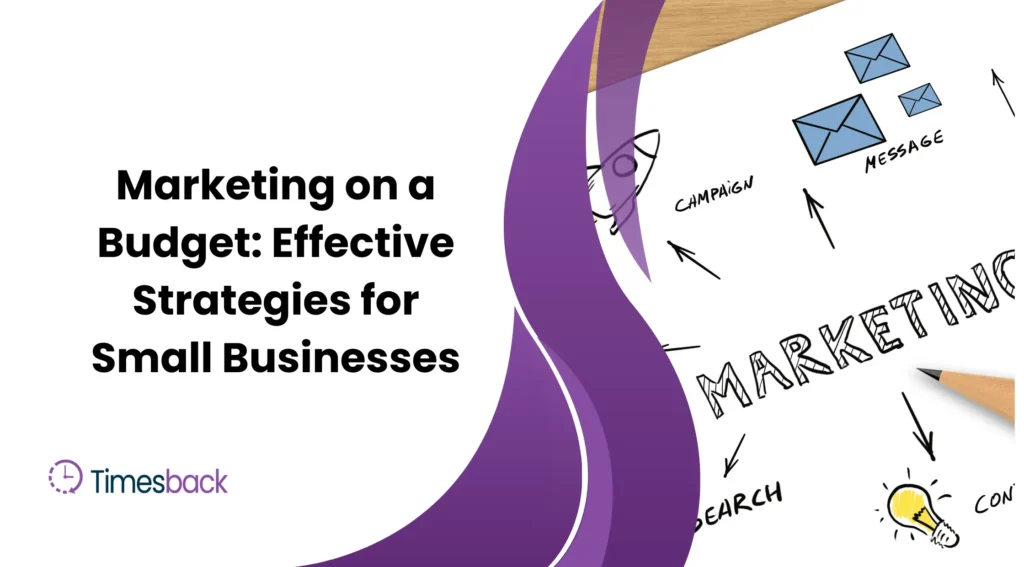Marketing on a Budget: Effective Strategies for Small Businesses

In today’s competitive business landscape, mastering marketing on a budget has become a crucial skill for small businesses looking to grow without overspending.
Anúncios
With limited financial resources, small business owners need to adopt smart, cost-effective strategies to maximize their marketing impact.
This guide provides actionable insights and effective techniques to help small businesses thrive without draining their budgets.
1. Leverage Social Media for Organic Growth
Social media platforms like Facebook, Instagram, LinkedIn, and TikTok offer enormous potential for businesses to reach wide audiences without significant financial investment.
Anúncios
A well-crafted social media strategy can generate organic engagement, build brand awareness, and foster customer loyalty.
Small businesses can use various tactics, such as posting regularly, responding to comments, and engaging with followers, to create a strong presence.
But to maximize impact, it’s essential to target the right audience, optimize posts for visibility, and take advantage of free tools like Instagram Insights or Facebook Analytics to track performance.
Content that resonates with your audience is key to success. Instead of pushing for direct sales all the time, focus on offering value, whether through educational content, behind-the-scenes looks at your business, or user-generated content.
According to Hootsuite's 2023 report, 54% of small businesses identified social media as their most cost-effective marketing tool.
+ How to Create a Digital Product and Sell Online
Creating a Social Media Calendar
To stay consistent, businesses should create a social media calendar to organize posts and plan content ahead of time.
This reduces the risk of last-minute scrambling and ensures your brand stays active across all channels.
| Platform | Ideal Posting Frequency | Key Engagement Strategies |
|---|---|---|
| 1-2 times daily | Use video content and respond to comments | |
| 1-2 times daily | Leverage stories and use popular hashtags | |
| 3-4 times weekly | Share industry insights and join discussions |
2. Content Marketing: Build Authority Through Value

Content marketing is one of the most powerful strategies for marketing on a budget.
Creating high-quality, relevant content not only helps businesses attract potential customers but also establishes their authority within their industry.
For small businesses, the key is quality over quantity. Rather than pumping out constant blog posts or videos, focus on crafting well-researched, thoughtful pieces that speak directly to your target audience’s needs.
Whether through blog articles, podcasts, infographics, or video tutorials, delivering valuable information can significantly enhance brand credibility.
A HubSpot study shows that companies that invest in content marketing generate 67% more leads than those that don’t.
Moreover, valuable content is shareable, meaning one well-written blog post can lead to organic shares across social media, further increasing your reach without additional spending.
+ What is SWOT analysis and how to apply it to your business
Creating Evergreen Content
Another important aspect of content marketing is creating evergreen content—articles or posts that remain relevant over time.
Evergreen content ensures that your marketing efforts continue to work for you months or even years after publishing.
Here are a few content ideas that small businesses can create to engage their audience:
- How-to guides or tutorials
- Industry news and insights
- Customer success stories
- Listicles and top-10 posts
3. Email Marketing: High ROI with Personalization
Email marketing remains one of the most cost-effective marketing strategies for small businesses.
With a return on investment (ROI) of $42 for every dollar spent, it’s an essential tool for nurturing leads, driving sales, and maintaining customer relationships.
However, the key to a successful email marketing campaign is personalization. Rather than sending the same email to every subscriber, segment your email lists based on behavior, interests, or demographics.
Personalized emails have a higher open and click-through rate, driving better results.
For instance, if a customer recently purchased a product, follow up with recommendations for complementary products or offer them an exclusive discount on their next purchase.
Email automation tools like Mailchimp or Constant Contact allow small businesses to set up triggered emails that send based on specific customer actions, making the process more efficient.
| Email Type | Purpose | Frequency Recommendation |
|---|---|---|
| Newsletters | Keep customers updated and informed | Weekly or bi-weekly |
| Promotional Emails | Announce sales, new products, or events | Bi-weekly or during promotions |
| Follow-up Emails | Build loyalty with personalized messages | After purchase or sign-up |
4. Collaborate with Micro-Influencers and Local Businesses
Collaborating with influencers and partnering with local businesses can significantly extend your marketing reach without substantial costs.
While many influencers command large fees, small businesses can focus on micro-influencers—those with smaller, more engaged followings.
Micro-influencers often charge lower rates but can deliver high engagement rates because their followers are highly loyal and invested in their recommendations.
Businesses can offer products or services in exchange for promotion, creating a win-win situation that expands brand awareness and drives conversions.
Likewise, forming partnerships with other local businesses can be a mutually beneficial arrangement.
For example, a bakery could collaborate with a local coffee shop, offering cross-promotions to each other’s customers, resulting in broader exposure for both brands.
5. Invest in Search Engine Optimization (SEO)
For small businesses looking to master marketing on a budget, SEO is essential. SEO refers to optimizing your website and content so that it appears higher in search engine results.
The higher your business ranks on Google, the more likely it is that potential customers will find you.
SEO can be divided into two main categories: on-page and off-page optimization.
On-page optimization includes keyword research, writing meta descriptions, optimizing images, and ensuring mobile-friendliness.
Off-page optimization includes building backlinks from reputable websites to improve your site’s credibility in the eyes of search engines.
By following SEO best practices, small businesses can drive consistent organic traffic to their websites, increasing the chance of conversions without ongoing advertising costs.
On-Page SEO Strategies
- Use relevant keywords strategically in content and meta descriptions.
- Ensure your site has fast load times and is mobile-friendly.
- Incorporate internal links to keep visitors engaged with your content.
6. Host Webinars and Free Workshops
Webinars and workshops are another excellent option for small businesses wanting to engage their audience without spending a lot of money.
Offering free educational sessions on industry topics positions your business as an authority, builds trust, and attracts potential customers.
Businesses can host live sessions to interact directly with participants or pre-record content to use for lead generation later.
For example, offering a free workshop about a trending topic can encourage participants to subscribe to your email list, making it easier to engage with them in the future.
Additionally, webinars are great for collecting data and feedback. You can use polls or surveys during the session to gain insights into what your audience wants, allowing you to tailor future marketing efforts more effectively.
7. Paid Advertising: Small Investments, Big Returns
While the focus of marketing on a budget is reducing costs, there may be instances where investing in paid advertising is beneficial.
Platforms like Google Ads, Facebook Ads, and Instagram Ads allow businesses to run highly targeted campaigns based on demographic information, location, or specific interests.
Small businesses can start with modest budgets and run test campaigns to see what works before scaling up. It’s essential to analyze the performance of paid campaigns regularly to ensure that your investment yields the highest possible returns.
By continually refining and targeting the right audience, businesses can drive significant results without overspending.
Example of a Small-Scale Paid Ad Strategy
- Allocate $200/month to Facebook ads targeted at specific demographics.
- Run A/B tests to compare different ad creatives and messaging.
- Analyze results and adjust based on performance.
8. Build and Nurture Customer Relationships
One of the most effective and cost-friendly marketing strategies is word-of-mouth marketing. Building and nurturing strong relationships with your existing customers can lead to valuable referrals and repeat business.
Happy customers are more likely to recommend your business to others, generating new leads with minimal marketing spend.
Additionally, small businesses can use loyalty programs or referral incentives to encourage customers to spread the word.
Offering discounts, special promotions, or exclusive content in exchange for referrals helps to build a community around your brand.
Online reviews also play a critical role in shaping consumer behavior. Encourage satisfied customers to leave positive reviews on platforms like Google My Business or Yelp, which can significantly enhance your reputation.
Conclusion
Mastering marketing on a budget requires creativity, dedication, and a deep understanding of your audience’s needs.
By leveraging social media, content marketing, email campaigns, and SEO, small businesses can effectively promote their products and services without breaking the bank.
Collaboration with influencers, hosting webinars, and building strong customer relationships will further boost your marketing efforts.
Remember, consistency is key. Continuously refining your strategies based on performance will allow your business to grow sustainably, ensuring long-term success even with limited resources.
